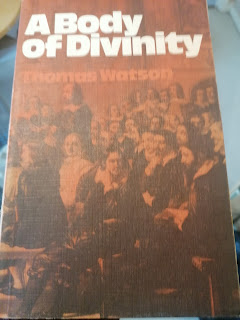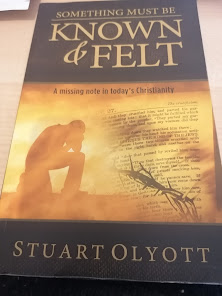Book Review: A Body of Divinity
Let us for a moment consider the lay-out of this grand work before us: Watson gives us 6 categories for the 43 questions: (a) the introduction with two questions and their answers. (b) God and His creation with the next 14 questions and their answers. (c) the fall with 5 questions and their answers. (d) the covenant of grace and its mediator with 8 questions and their answers. (e) the application of redemption with 10 questions and their answers. (f) death and the last day with 3 questions and their answers. The scriptures gives us the command that we should "Fathers, do not provoke your children to anger, but bring them up in the discipline and instruction of the Lord." (Eph. 6: 4) This command can and does have several foundations to it: one to the godly family; and one to the congregation. One to the father who is raising his offspring to follow the Lord; and the other to the pastor who is raise the flock of God, And it would be wise that a man such as Thomas have applied these principle to both arenas.
Some of the chapters which stand as being important for all Christians are the following ones: (1) The scriptures (p. 26-38) which deals with the authority and supremacy of the Word. (2) The being of God (p. 39-54) which deals with the scriptural truths regarding God. (3) The Trinity (p. 108-113) which gives a basic overview of this truth. (4) The creation (P. 113-119) which gives us a foundation to understand the created world around us. (5) Christ the mediator (p. 161-166) which establishes this most important function and office of Him being the Messiah; and the following 3 chapters are explanations of this role and offices. And all of these thing reveal to us the glories of God first and second creation. Think about that grand statement in Ps. 19 where it distils both of these things one through the world and the other through the Word.
I would like to put before you a chapter from this work that seems to be a most important one: the truth of God (p. 99-103) Let us end this with the following words which help us grasp the reality of truth: "Use one: The truth of God is a great pillar for our faith. Were not he a God of truth, how could we believe in him? Our faith were fancy; but he is truth itself, and not a word which he has spoken shall fall to the ground. ‘Truth is the object of trust.’ The truth of God is an immovable rock, on which we may venture our salvation. (Isa59:15)" (p. 101)
I would recommend all Christian to give time to read this work.

